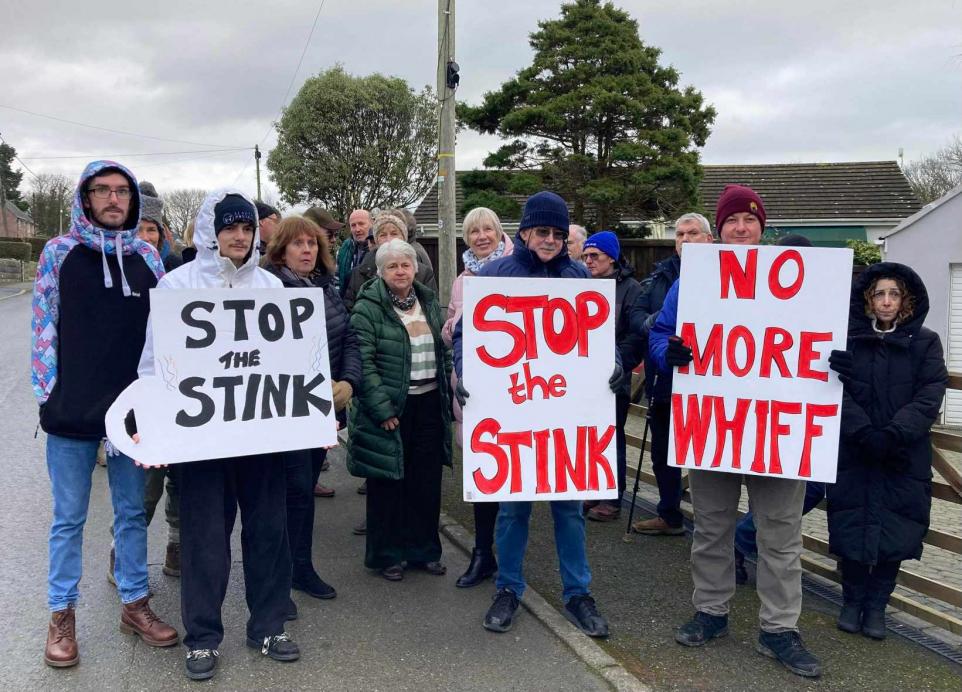Politics
Energy policy and the environment
 LAST WEEK The Herald looked at the energy market and the ways in which different parties have approached the question of rising domestic energy bills.
LAST WEEK The Herald looked at the energy market and the ways in which different parties have approached the question of rising domestic energy bills.
That article discussed the ways in which taking advantage of existing energy efficiency schemes and the use of the most competitive tariffs would reduce bills far more than a simple price cut on the most commonly used domestic tariff.
Labour has claimed it will create over 300,000 renewable energy jobs throughout the country and put modern low-carbon industries at the heart of a £500 billion investment strategy, championing ‘a new green industrial revolution’.
One of the big ideas underpinning that commitment is to promote the growth of local energy companies and support the development of 1,000 community energy co-operatives. That’s accompanied by a commitment to 65% renewable electricity by 2030, aiming for 85% as technology improves and diffuses.
All of which will sound very familiar to Plaid Cymru, whose Shadow Environment spokesperson, Simon Thomas AM, has called for the creation of Ynni Cymru to promote Wales’ own self-sufficiency in domestic energy. It sounds like Plaid’s clothes have been lifted by Jeremy Corbyn’s promises to invest in similar schemes and raise investment across the UK.
Labour has set out a radical commitment to set up publicly-owned energy supply companies in every region focused purely on cutting prices. Under the same proposals, Government would take ‘control of the natural monopolies of the transmission and distribution grids’ currently run by the National Grid.
The Labour leader has made big promises, and the cynical might think that Labour may as well shoot for The Moon, given the remote chances it has of forming an administration under Jeremy Corbyn as PM.
“We’ve got a real opportunity to drive the green economy – to have green jobs, green growth, and make sure that we have our share of the industries of the future. Clearly there’s the climate change agenda, where we’ve got to get back on track, both nationally and internationally. And third, there is the issue of energy security, which I think is vitally important, which we need to do a huge amount of work on.”
Those were big promises, too. They were made seven years ago by David Cameron at the outset of his first term as PM, when he pledged to lead the greenest government ever. By 2013, David Cameron was keen to ‘get rid of all the green crap’, as the hopes of 2010 smashed into the economic and political realities of Treasury austerity.
The rug was pulled from under the renewables industry: following through on the pledge to virtually ban onshore wind, and slashing the feed in tariff. Overall UK carbon emissions had been falling but the growth in renewables deployment stalled, and solar companies employing thousands of people around the country went bust.
Five years later, at the outset of his second term, David Cameron pulled the Green Deal for UK homes.
On every single one of those policy decisions, commitments, and staggering reversals Theresa May went along, bobbing along like a cork on the tide of Cabinet collective responsibility. The number of times she has spoken out on energy policy in public can be counted on the fingers of one thumb. However, she merged the Department of Energy and Climate Change into a new Department of Business, Energy and Industrial Strategy in July 2016.
While that suggests a rather less overtly ‘green’ approach to the PR side of politics than her predecessor, it is noteworthy that Theresa May has expressed consistent and strong positions on the issue of energy security. Her first noteworthy public policy decision was to initiate a pause on the development of Hinkley B, ostensibly due to concerns of increasing UK reliance on Chinese investment in its energy infrastructure.
In addition, in a complex and volatile international energy market, there are clear attractions for the PM in adopting measure which enhance energy security and the reduction on the reliance of overseas energy. Her concerns on energy supply were echoed in the 2015 Conservative manifesto, which said: ‘Without secure energy supplies, our country becomes less safe and less prosperous’.
And, in 2008, Mrs May said: “I am thrilled to see that after years of Conservative pressure, we have finally passed a necessary and ambitious piece of legislation on Climate Change. Britain is the first country in the world to formally bind itself to cut greenhouse emissions and I strongly believe this will improve our national and economic security.
“To stay reliant on fossil fuels would mean tying ourselves to increasingly unstable supplies which could endanger our energy security and the Climate Change and Energy Bills mark an important step for both the health of our economy and the health of our nation. It is now vital that we stick to these targets.”
The logic of Mrs May’s evident and consistently expressed concerns on security of energy supply is to make the UK more self-sufficient. There are two sides to that issues: firstly, the extension of green energy generation; secondly, the extension of fracking and nuclear power.
The second limb of that proposition is the most contentious. Fracking is a public relations disaster waiting to happen and the first time it is scheduled to take place in a Conservative-held marginal seat is when we will see just how committed the Conservative party is to its use. As for nuclear power, it requires considerable public support and subsidy to make it even marginally viable for the long term.
The only large energy project requiring anything like the level of price support as nuclear power is the Swansea Tidal Lagoon, which for all its carbon-saving claims involves quarrying stone in Cornwall, building new jetties extending into the Bristol Channel and transporting the stone over by barge to Swansea by the thousands of tonnes to build a tidal barrage affecting marine life and habitats across the whole of Swansea Bay.
For someone as sensitive to polls as Theresa May it is worth noting that the BEIS tracker surveys on consumer views shows significantly higher support for renewable energy (at around 75-80%) than for other options. Opposition to renewables was very low at 4%, with only 1% strongly opposed.
However, and this is where energy policies and political judgement come into play, support for renewables was lower amongst those in social grade DE (72%), aged 65+ (73%), and social renters (75%).
The first two of those groups are key electoral demographics whose support Theresa May is actively courting. The triangulation of Conservative policy on energy, which now appears to have abandoned the notion that competition delivers the best results for energy users, might not swing a lot of votes, but the Conservative leader will not be shy of using every gimmick in her arsenal to court wavering voters looking for a way to justify voting Conservative.
News
20mph U-turn: Some roads will return to 30mph following public outcry

IN a recent shift in policy, Transport Secretary Ken Skates announced that some roads in Wales will revert to a 30mph speed limit following significant public opposition to the Welsh Government’s £34 million initiative to impose a default 20mph limit. This move addresses the concerns consistently raised by many citizens.
The controversial policy, initially rolled out across Wales under former First Minister Mark Drakeford and his transport minister, Lee Waters, aimed at enhancing road safety. However, it has since faced backlash, illustrated by nearly half a million signatures on a Senedd petition opposing the change.
“We’ve put our hands up to say the guidance has to be corrected,” Skates stated, acknowledging the widespread dissatisfaction with the policy’s implementation. He emphasised the need for targeted 20mph zones, particularly in sensitive areas such as near schools, hospitals, and densely populated housing estates. Yet, he admitted that certain routes should not have been included under the stricter speed limit.
Swansea Council Leader Rob Stewart welcomed the revised approach but highlighted the financial burden of changing road signage, urging the Welsh Government to assist with the expenses. Stewart praised Skates’ “pragmatic approach” and stressed that the government should not impose the financial strain on local councils, which are already facing tough budgetary decisions.
The policy has had its proponents, particularly among cycling groups and safety advocates who argue that the lower speed limits contribute to safer community spaces. Despite this, many have called for a more nuanced application of the speed limits rather than a blanket reduction.
In response to the backlash, Skates is set to present the planned adjustments in a forthcoming statement to the Senedd. The changes will allow local councils the autonomy to restore the 30mph limit where deemed appropriate, potentially affecting up to 10 roads in Swansea alone.
Leaders from other councils, including Huw Thomas of Cardiff, expressed relief over the change. Cardiff, where the majority of roads were already under a 20mph limit, saw a favourable reception of the policy. Nonetheless, the decision to empower local governments has been largely welcomed.
The Welsh Conservatives, through their transport spokesperson Natasha Asghar, have voiced strong opposition to the original policy, criticising its expansive application. Meanwhile, Plaid Cymru leader Rhun ap Iorwerth called for a more carefully considered implementation, supporting the principle of 20mph zones but criticising their inconsistent enforcement.
Responding to comments made by Ken Skates, Labour’s Cabinet Secretary for Transport on potential changes to the 20mph guidance, Natasha Asghar MS, Welsh Conservative Shadow Transport Minister said: “The people of Wales have rightfully taken significant issue with Labour’s 20mph policy and ‘correcting guidance’ will not be enough to ease concerns.
“The Welsh Conservatives are the only the party to have consistently voted against the ridiculous 20mph policy involving 97% of previously 30mph roads and a £9 billion hit to the Welsh economy.
“The Welsh Conservatives want to see this policy scrapped and have given the Labour Government a number of opportunities to vote to do so. A more targeted approach is needed with the support of the Welsh people.”
News
Withyhedge Landfill faces political allegations and regulatory enforcement

STEPHEN CRABB MP has vociferously criticised the Welsh Labour Government for its management of the Withyhedge Landfill in Pembrokeshire, claiming it has turned the area into a “dumping ground” for waste from across Wales. Mr. Crabb, supported by Paul Davies MS, alleges that substantial lorries deliver waste daily to the site, causing significant distress to local residents. The MP has repeatedly written to the First Minister, demanding immediate intervention, yet claims to have received no response.
Compounding the controversy, Mr. Crabb highlighted a substantial £200,000 donation to Vaughan Gething’s recent election campaign from the landfill’s owner, questioning the impartiality of regulatory practices. Despite ongoing political efforts, Mr. Crabb asserts that resolution lies solely with the Welsh Government, which has the ultimate authority to address these grievances.
Meanwhile, Natural Resources Wales (NRW) has escalated its enforcement actions against the site’s operators, Resources Management UK Ltd (RML), amid persistent community complaints about odour and gas emissions. A recent Regulation 36 Enforcement Notice demands a series of remedial actions by RML, with deadlines stretching into May 2024. These measures focus on improving the site’s gas management infrastructure and capping exposed areas to mitigate odour issues.
Huwel Manley, Head of South West Operations at NRW, expressed understanding of the community’s frustration, emphasizing the urgency of the required actions. “We are committed to ensuring RML Ltd. deliver these actions rapidly and effectively. Continued non-compliance will lead to further measures, potentially including a suspension of the environmental permit,” stated Mr. Manley.
Pembrokeshire County Council, represented by Chief Executive Will Bramble, also voiced disappointment over the ongoing issues, affirming full support for NRW’s stringent enforcement steps. The Council and NRW are working closely to monitor the situation and have encouraged the public to report any odour incidents promptly to aid in effective resolution.
As the deadline approaches, all parties involved are under increasing pressure to demonstrate tangible improvements and ensure the health and well-being of Pembrokeshire residents are prioritised.
Politics
Barclays closure in Haverfordwest sparks calls for banking changes

A CALL for Pembrokeshire County Council to potentially change its banking arrangement with Barclays, after the bank announced it was closing its county town branch, is expected to be turned down next week.
Barclays Bank in Haverfordwest, located on the town’s High Street, is to close on May 10.
The council has had a banking services contract with Barclays since 2013, with the most recent contract – for four years – signed last May following an independent review.
Councillor Huw Murphy, in a notice of motion to be heard by Pembrokeshire County Council’s Cabinet meeting of April 22, is asking the council to review its banking arrangements with Barclays following the announced closure.
“The loss of many banking facilities within Pembrokeshire over recent years has had a detrimental impact on many town centres such as Tenby, St Davids, Fishguard, Milford Haven, Narberth, Newport and Pembroke and Pembroke Dock and will soon impact Haverfordwest with the loss of Barclays bank to the town.”
He said the loss of a branch “not only impacts upon town centres and businesses but also disproportionately impacts the elderly who are less likely to embrace on-line banking options”.
After the Haverfordwest closure was announced, a spokesperson for the bank said that the Haverfordwest branch only had 32 regular customers who used the branch exclusively for their banking and do not interact with Barclays in any other way.
A report for cabinet members says, in terms of the impact on Pembrokeshire residents, Barclays has said that it is “not leaving Haverfordwest and [will] continue to provide face-to-face support for those who need it” via community locations.
It adds: “Everything else can be done via alternative channels such as everyday transactions via the Post Office. We will be making personal contact with our regular and vulnerable branch users to discuss their options and guide them through alternative ways to bank.”
Two options were presented to cabinet following Mr Murphy’s motion, to retender the banking services contract, and, the favoured, to work with Barclays to ensure a community location is set up in Haverfordwest.
The report says the costs associated with moving to a new service provider “can be excessive and in some cases greater than the cost of the annual contract value,” adding: “Whilst the costs can vary between local authorities it can be in excess of £50,000.”
For the second, favoured option, the report says: “An integral part of the branch closure communication, Barclays advised that they will be setting up a community location in Haverfordwest.
“Whilst this is a change to how Barclays currently operate in Haverfordwest, this concept mirrors the successful implementation of a hub located within The Giltar Hotel in Tenby that operates twice a week.”
It adds: “Discussions have commenced with Barclays to see what the council can offer in terms of locations.”
Cabinet members are recommended to back the second option.
-

 Business4 days ago
Business4 days agoBluestone National Park Resort payments expected to end
-

 Community6 days ago
Community6 days agoThe Harbourmaster: Special rail excursion draws crowds to Milford Haven
-

 News5 days ago
News5 days agoDragon LNG ‘monitoring’ scrap car blaze in Waterston
-

 News6 days ago
News6 days agoSearch for Luke, 19, reported missing in the Pembroke Dock area, continuing
-

 News3 days ago
News3 days agoSearch for missing teenager Luke continues at Pembroke Dock
-

 Crime4 days ago
Crime4 days agoEstate agents admit health and safety failings following fatal market incident
-

 News3 days ago
News3 days agoMan jailed after scarring police officer in Narberth altercation
-

 News1 day ago
News1 day agoPolice issue update on the search for Luke, missing from Pembroke Dock
























